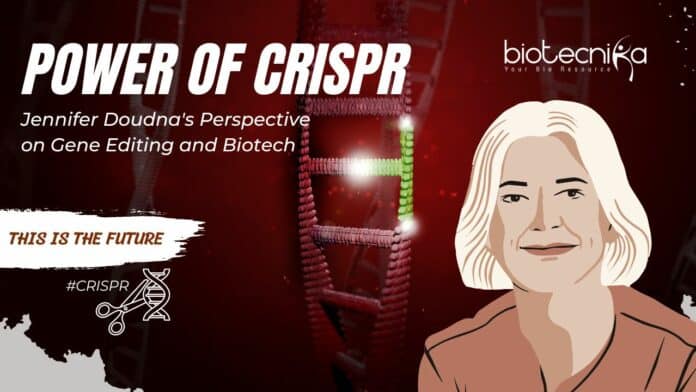Power of CRISPR & Challenges
CRISPR, a powerful gene editing tool, has transformed the field of genetics and biotechnology. This revolutionary technology, short for Clustered Regularly Interspaced Short Palindromic Repeats, allows scientists to “rewrite the code of life” and make changes to DNA sequences that were never possible before. CRISPR has the potential to cure genetic diseases, revolutionize cancer treatment, and make changes in agriculture that could have a huge impact on global food security.
Challenges in Using CRISPR
Despite the enormous potential of CRISPR technology, the biggest challenge is figuring out how to use these tools in a way that is safe and effective. In a recent video interview with Nasdaq, CRISPR Co-Founder Jennifer Doudna explained that a lot of work is going on to overcome these challenges. Despite the hurdles, Doudna and other scientists are excited about the potential of CRISPR technology.
Curing Genetic Diseases
One of the most exciting possibilities for CRISPR is the potential to cure genetic diseases such as sickle cell disease and eye disorders. CRISPR offers a tool that can potentially cure these rare diseases. Scientists can use CRISPR to make changes to DNA sequences, which could potentially cure genetic diseases that were previously
difficult or impossible to treat.Revolutionizing Cancer Treatment
CRISPR also has the potential to revolutionize cancer treatment through reprogramming the immune system for hard-to-reach cancers. This technology could potentially revolutionize cancer immunotherapies, although it is still in its early stages of development.
Informing our Understanding of the Genetics of Disease
CRISPR and big data analysis will intersect to inform us about the genetics of disease in ways that have not been possible in the past. This will lead to new insights into the underlying causes of diseases and potentially new treatments.
Limitations of CRISPR Technology
Despite the enormous potential of CRISPR technology, there are still limitations to this technology. Currently, the limitations are based on our limited knowledge of genetics and the difficulty of making multiple changes to DNA. However, scientists are working to overcome these limitations and make the technology more precise.
Making Changes in Agriculture
CRISPR technology also has the potential to make changes in agriculture, which could lead to economic activity around the technology. For example, CRISPR could be used to make crops more resistant to disease or to make them more nutritious.
In conclusion, Power of CRISPR & Challenges – CRISPR technology has the potential to revolutionize the way we think about genetic diseases, cancer treatment, and agriculture. However, there is still a lot of work to be done to make this technology safe and effective. Scientists are working to overcome the limitations of CRISPR technology and make it more precise. As we learn more about genetics and how to use CRISPR effectively, the possibilities for this technology are only going to expand. We can expect to see significant advancements in the field of gene editing in the next decade.
About Jennifer Doudna: She is a renowned biochemist and molecular biologist who is best known for co-inventing the CRISPR-Cas9 gene editing technology, along with Emmanuelle Charpentier. Doudna is a professor at the University of California, Berkeley, and is also a Howard Hughes Medical Institute Investigator. In 2020, she was awarded the Nobel Prize in Chemistry, along with Charpentier, for their pioneering work on CRISPR-Cas9. Doudna has been a prominent voice in the field of gene editing and biotechnology, and she continues to work on improving the technology and exploring its potential applications.































